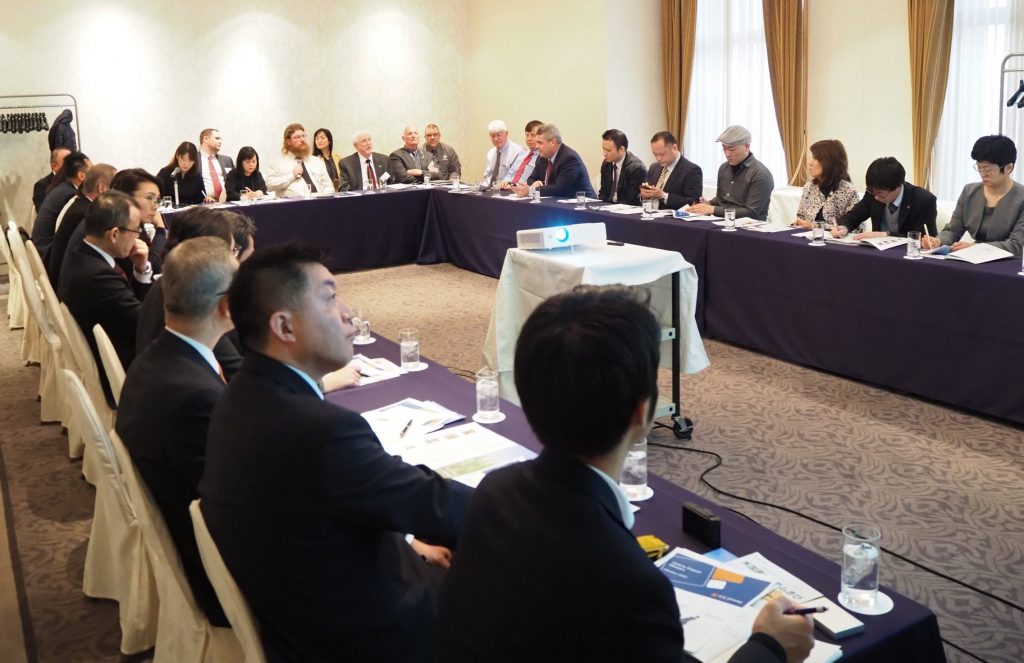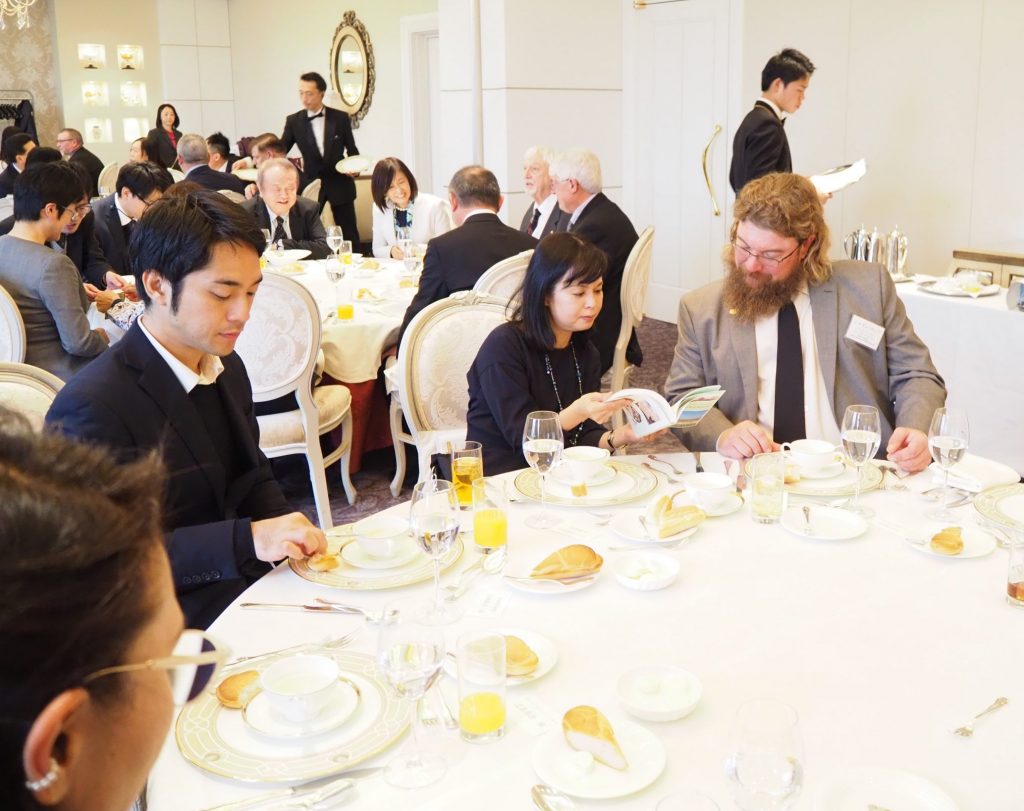In Toyko last week, two Kansas farmers shared how and why they grow sorghum with a room of Japanese snack and food industry representatives before returning to their farms – all part of the U.S. Grains Council’s (USGC’s) annual Grain Export Mission (GEM).
“As a sorghum farmer, it excites me to see existing and future market opportunities,” said Shayne Suppes, a Kansas farmer who represented the United Sorghum Checkoff Program on the mission. “I was impressed with how thorough and deliberate the Japanese people are. The mission was very educational and the meetings and people were informative and honest.”
The GEM is designed to show Council members – specifically those who are becoming more engaged in market development – how the Council carries out its mission of developing markets, enabling trade and improving lives. Suppes and Clark Bibb, representing the Kansas Grain Sorghum Commission, joined a larger GEM delegation for the rollout of the 2019/2020 Corn Harvest Quality Report, follow-up meetings with Japanese end-users, importers and government officials and visits to a wagyu beef farm and port facilities.
This year’s GEM missions to Japan and South Korea included both these newly engaged farmers and experienced leaders – providing the opportunity for the GEM participants to learn from one another about the importance of trade and their individual farming operations. A handful of these farmers also presented during the crop quality seminars, serving as highly effective trade ambassadors that helped open the eyes of international buyers to innovations in agricultural practices and how the U.S. grain chain focuses on quality.
In addition to these events, the Council arranged a food sorghum roundtable to exchange information between Japanese food industry representatives and the U.S. farmers on the current grain situation in the United States and food sorghum as a crop. The event also included a luncheon with dishes made using food sorghum.
“The roundtable, which included representatives from 10 Japanese food companies and three reporters, brought together for a frank exchange about food sorghum production, purchasing, use and product development,” said Cary Sifferath, USGC senior director of global programs, who led the mission. “The roundtable discussion also allowed these farmers to learn about the needs and interests of Japanese customers.”
The Council and the Sorghum Checkoff have promoted white food sorghum and white sorghum flour in the Japanese market since the early 2000s, including displaying and sampling products at food shows and showcasing events. The Council has also approached hotels and restaurants to introduce their chefs, including the one who prepared the luncheon meal last week, and their guests to white sorghum.
“Meeting with the professionals from the food sorghum industry was a proud moment of mine,” Suppes said. “Excitement for the future of food-grade sorghum is a main focus on our farm. I hope to be right in the middle of the next food-grade sorghum movement.”
As a result of these educational programs, the Japanese snack and food industry has increased interest in and commercialization of sorghum for their products. The Japanese market now includes more than 50 food products in Japan with sorghum as an ingredient.
“Food sorghum in Japan represents a small, niche market; however, this specialized, health-conscious market provides another value-added opportunity for U.S. sorghum farmers,” Sifferath said. “The Council will continue to promote food sorghum as a healthy and environmentally-friendly grain, while, at the same time, maintaining a close relationship with feed sorghum customers.”
Learn more about the Council’s work to promote sorghum in Japan.
About The U.S. Grains Council
The U.S. Grains Council develops export markets for U.S. barley, corn, sorghum and related products including distiller’s dried grains with solubles (DDGS) and ethanol. With full-time presence in 28 locations, the Council operates programs in more than 50 countries and the European Union. The Council believes exports are vital to global economic development and to U.S. agriculture’s profitability. Detailed information about the Council and its programs is online at www.grains.org.


